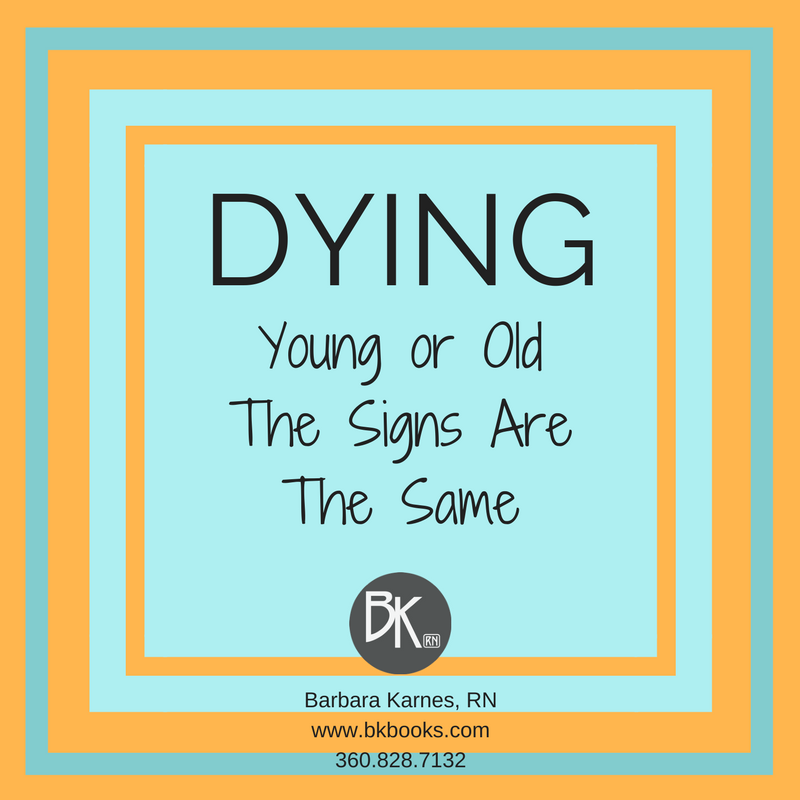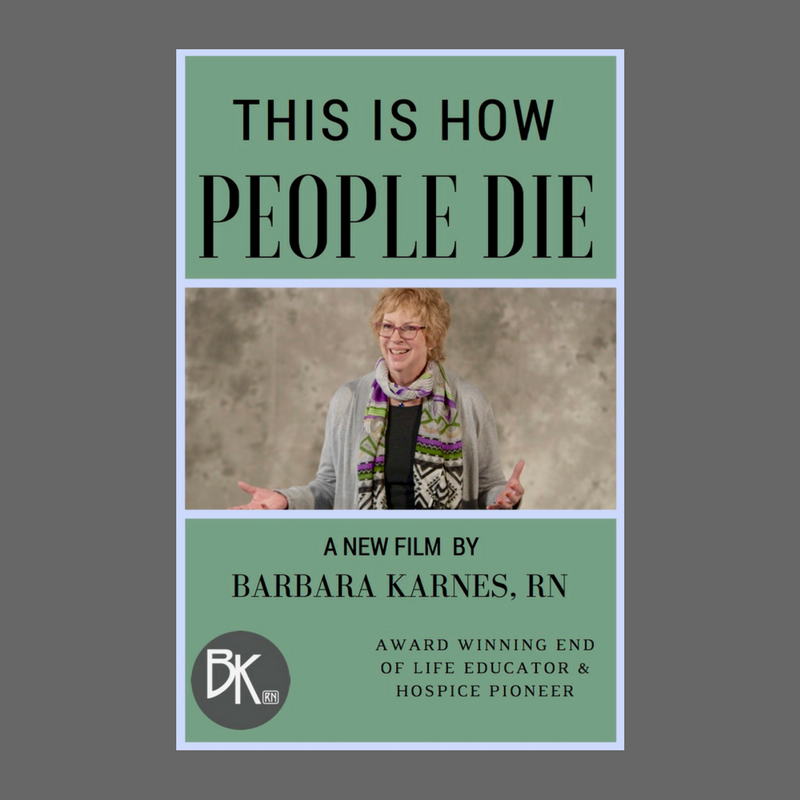I received these three emails and want to share them. Dementia causing illnesses, by whatever name we classify them, are becoming more and more prominent. Dementia, and how to care for people with it, has become a big healthcare issue.
Dear Barbara, my mother has FTl dementia diagnosed in 2016. She was quite normal until she broke her hip in 2017 and deteriorated when she came home with poor mobility. By September she had lost all speech, from March until January 2018 she screamed all the time, and obsessed about being taken out or going to the toilet. In January 2018 she was admitted into a hospital where she remains at the moment, with pneumonia and sepsis, although now awaiting for her to come home. October she was diagnosed with stage two dementia with swallowing difficulties. She is very vacant and stares through us all. She is unable to communicate at all, her muscles are contracting and she has also lost a lot of weight. She is eating and drinking less than she usually would. We have been told she is now in advanced stages and no longer mobile. We feel she may be waiting to come home. We do think she still recognizes us. The hospital seem to think otherwise!
In response to your comment about your mother and her progressing dementia, there isn’t a lot of guidance I can give you not having more information. I can say that dementia doesn’t play by the rules for end of life. Withdrawing and sleeping can be present for years and does not signify approaching death. Not eating and not swallowing are your key signs. If we don’t eat, we can’t continue to live. Always offer food (be careful of choking), but don’t force food.
About how much your mother knows: obviously I don’t know for sure but I always operate with the belief of "what if some part of them knows." I recommend talking to the person as if they understand. Share coming and goings, thoughts of love and thoughts of regret. Say what your heart needs to say. I believe some part hears and knows.
Do I think she wants to come home? Yes, nobody wants to be in a hospital. We all will choose home and our loved ones. I do have a concern for you.
Taking care of someone that is total care is 24/7 plus so much more. As a caregiver it is not only physically exhausting but emotionally draining. What kind of support system do you have in place for you?
Another email: Dear Barbara, I resonate so strongly with the woman who asked this question, my mother, 93 years old, is in much the same situation and while her heart and BP are fairly good, she does have COPD, and dementia, but in many ways it is mild, she is not combative but it has affected her physical ability to move around safely, ability to do daily activities, her memory and emotions.
Mom lived with my husband and me for almost four years (after she was diagnosed with dementia) and I took early retirement and hired a nurse aide to come in a few days a week to care for her bath, etc., which was very helpful. But whenever she became sick that I couldn’t handle, she ended up in the ER, which meant hospitalization, then 4-6 weeks of rehab in a nursing home and then in home nursing and rehab for another 4-6 weeks after that. It was bearable and I know it was better than a nursing home and she would always bounce back, diminished, but at least no longer ill.
However, it became apparent after another prolonged illness that her care was truly more than I felt I could handle (and my own health was being compromised as well). She is in a very nice nursing facility that really has been very good to her. I visit 3-4 times a week and bring her special things (flowers and chocolates are her favorites) but she always tears up and says how much she misses me, etc. I know it is the dementia partly, but how do I as her primary caregiver/advocate/daughter reconcile the guilt? I am beginning to think that after a few months I can become healthy again and maybe I should have her come back to our home? But it is a 24 hour job and if she returns, it is as if I am no longer her daughter, but her caregiver when she returns.
I am not sure I am looking for answers here, just thoughts on how to cope with this stage of her life, that seems to be taking so much of my life as well. Marcia
Oh Marcia, you face a life situation that so many are now living—do I sacrifice myself in caring for my parent? The thought we have is “they sacrificed for me, now it is my turn.” As the care becomes more difficult and goes on and on, (often for years) we begin thinking “I just want this over with or I want to get on with my life.” OH THE GUILT.
My thoughts (and I have been in these shoes with my mother-in-law and my mother) are that we take care of our own, when we can, for as long as we can. The operative words here are “as long as we can.” When the caregiver role becomes a bigger burden than our health and peace of mind can bear, then we look elsewhere for help and support. A nursing facility is often the reasonable answer. When that occurs our responsibility, our care, is not eliminated, it has just changed. We are still caregivers for our loved one. The physical responsibility has just shifted. We still visit, plan special outings (when feasible), bring special food, surprises. Our loved one is no longer in our home, but not forgotten.
You are doing all that I mentioned above. You are taking care of yourself so that you can take care of your mom. That care is just in a different way now that she is not under your roof.
Another email: Dear Barbara, my mother suffered from dementia for 4 years. She passed away in 2017. I was at her side till the last minute and saw her take her last breath. Does a person with dementia know that she is dying? Neither of my sisters made it over before she died but I believe that she waited for them until the last minute.
You asked if I think your mother waited for your sisters to arrive before she died even though she had dementia. Yes, I do believe a person has limited control over the time that they die, even if they have dementia. I believe we are more than our physical body, that there is a “driver” to this vehicle we call our body. It is the “driver” that has control beyond the physical. The “ driver” does not have dementia. This is a controversial idea—some believe it, others not. My opinion is this: what do we have to lose by talking to the person that is dying, by telling them who is coming and going, by expressing our love and even regrets in the moments before death—a lot if they could understand, nothing if they didn’t.
Something more about The Profound Affect of Dementia on Families...
I often use the analogy of the flight attendant advising, "put your mask on first and then help others" to the caregiver in the family who is caring for a loved one with dementia. Self care must be a priority!
Also, my book, HOW DO I KNOW YOU, will guide you when the dying process begins.








2 comments
Janet
These comments really hit home, as I was so far away from my mother when she developed dementia . As long as my father was alive, he was her caregiver. They moved into an independent living facility and for a few years, that worked. Then she began to decline in health with strokes, a broken hip, etc, and it began to take a toll on him. Eventually, he died, and his last words to my brother were “I just can’t do this anymore”. I truly believe that he, as the caregiver, was completely worn down and unable to fight off pneumonia. He gave up. Mom would not hear of having anyone else except my brother stay with her, so he couldn’t even get out of the house to have a moment to himself. Mom was moved into a memory care unit which was another wing of the wonderful facility in which they had resided. Suddenly, all of their friends drifted off and she hardly ever had any company. The Director of the facility told us that people on the Independent side were “scared” of going into the locked facility. Ultimately, she lived another 3 years with increasing dementia. By the last time I saw her, she didn’t know who I was, but kept saying that I looked familiar. Such a terrible disease.
These comments really hit home, as I was so far away from my mother when she developed dementia . As long as my father was alive, he was her caregiver. They moved into an independent living facility and for a few years, that worked. Then she began to decline in health with strokes, a broken hip, etc, and it began to take a toll on him. Eventually, he died, and his last words to my brother were “I just can’t do this anymore”. I truly believe that he, as the caregiver, was completely worn down and unable to fight off pneumonia. He gave up. Mom would not hear of having anyone else except my brother stay with her, so he couldn’t even get out of the house to have a moment to himself. Mom was moved into a memory care unit which was another wing of the wonderful facility in which they had resided. Suddenly, all of their friends drifted off and she hardly ever had any company. The Director of the facility told us that people on the Independent side were “scared” of going into the locked facility. Ultimately, she lived another 3 years with increasing dementia. By the last time I saw her, she didn’t know who I was, but kept saying that I looked familiar. Such a terrible disease.
Marlou Russell, PhD
Another wonderful article! Thank you so much Barbara for shedding light and offering important information on topics of concern. I refer to your work often and know that my clients and friends have found clarity and compassion within your words. Thank you for all you do to break the denial of death and de-mystify the process of dying.
Another wonderful article! Thank you so much Barbara for shedding light and offering important information on topics of concern. I refer to your work often and know that my clients and friends have found clarity and compassion within your words. Thank you for all you do to break the denial of death and de-mystify the process of dying.